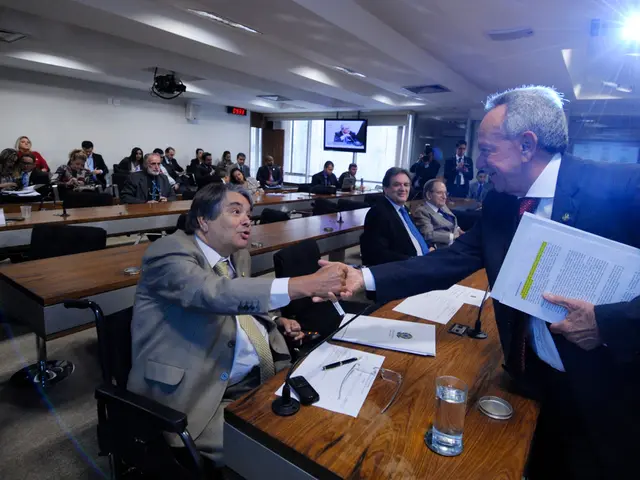Home Turmoil and Tensions over Taiwan: Perspective from Manila
The Philippines and Taiwan are strengthening their unofficial ties, a development that has raised eyebrows in Beijing. The Marcos siblings, including President Marcos and Senator Imee Marcos, have a personal affinity for Beijing and Philippine-Chinese ties, but this hasn't stopped the Philippines from fostering closer relations with Taiwan.
In September 2022, Lin Chia-lung, the chairman of the Taiwan Foundation for Democracy, visited the Philippines. Contrary to speculation, his visit was not in his capacity as Taiwan's foreign minister, but as the head of the Taiwan Foundation for Democracy. His presence was viewed as a misunderstood continuation rather than an excessively provocative move within the context of the Philippines' One-China policy.
Visa-free entry to Taiwan is a significant benefit for many Filipino travelers, and the Philippines has eased restrictions for top officials to engage with Taiwan for trade or cultural purposes. Reciprocal visa-free entry to the Philippines for Taiwanese travelers has also been implemented.
Ties between the Philippines and Taiwan have grown significantly since Marcos took office. This growth, however, has occurred amidst strained relations with China, particularly over Taiwan and the Taiwan Strait. China's actions in the South China Sea, such as the occupation of Mischief Reef and harassment in Ayungin Shoal and Scarborough Shoal, have raised concerns about its adherence to the joint communique between the Philippines and China.
The joint communique states that both countries will settle disputes peacefully and respect each other's territorial integrity. However, the Philippines has promised not to meddle in talks between China and Taiwan regarding their future. Defense Secretary Gilberto Teodoro Jr. has criticized China for "dictating" how the Philippines handles its One-China Policy.
There are calls in the Philippine Senate and House for a reconsideration of the One-China Policy, including recognizing Taiwan as a country. Some experts, like Robin Garcia, an expert on cross-strait relations, suggest expanding the unofficial relationship with Taiwan beyond just economic questions to include political provisions, similar to the Taiwan Relations Act of the United States.
Beijing has accused the Philippines of "undermining its relations with China" by allowing Taiwan's Foreign Minister, Lin Chia-lung, to visit Manila. The Philippines, on the other hand, needs to prepare for the potential influx of refugees from Taiwan, as well as the welfare of the Ilocanos who may be affected if tensions escalate.
It's important to note that the One China Policy is a 1975 agreement between the Philippines and China that requires the Philippines to recognize the People's Republic of China and cease relations with the Republic of China (Taiwan). However, the policy does not require the Philippines to advocate for reunification, especially if it involves violence.
In the city of Laoag, Ilocos Norte, with close ties to China and Taiwanese businesses, Lin was reportedly meant to visit. The Philippines-Taiwan relationship is a delicate dance, one that requires careful navigation amidst the complexities of regional politics and the ongoing tensions with China.
The Philippines Coast Guard and Taiwan's resident coast guard attache in Manila have opportunities for maritime cooperation. Preparing for a Taiwan contingency, in case of invasion or blockade, is not considered meddling in China's internal affairs. It's a matter of national security and welfare for the Philippines.
Senator Imee Marcos was part of the 1975 delegation led by her dictator father for a state visit that formally established diplomatic ties with China. Her personal affinity for Beijing and Philippine-Chinese ties, coupled with the current administration's stance, suggests a continued focus on maintaining and strengthening ties with China, while also fostering closer relations with Taiwan.
This dance between the Philippines, China, and Taiwan is a complex one, but it's one that the Philippines must navigate carefully to ensure its national security, economic interests, and the welfare of its citizens.
Read also:
- United States tariffs pose a threat to India, necessitating the recruitment of adept negotiators or strategists, similar to those who had influenced Trump's decisions.
- Weekly happenings in the German Federal Parliament (Bundestag)
- Southwest region's most popular posts, accompanied by an inquiry:
- Discussion between Putin and Trump in Alaska could potentially overshadow Ukraine's concerns








